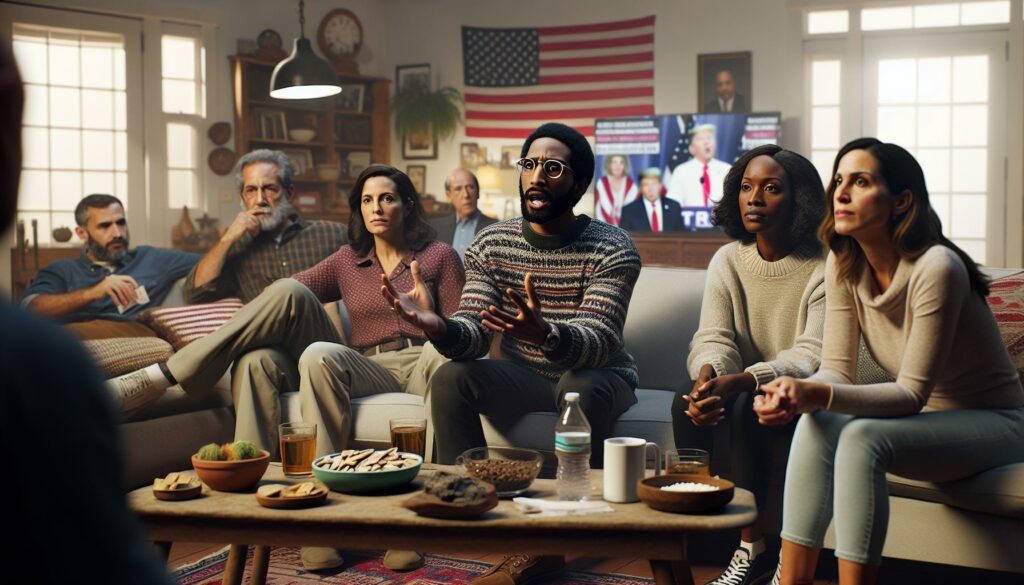Talk host shows are the ultimate playground for conversation, where laughter, drama, and insight collide. From the comedic genius of late-night hosts to the fiery debates of daytime talk, these shows serve up a delightful mix of entertainment and information that keeps audiences glued to their screens. Whether it’s a celebrity spill or a heartfelt discussion about life’s quirks, there’s something for everyone.
Talk Host Shows
Talk host shows serve as a unique platform for engaging discussions. They combine entertainment with topical insights, attracting diverse audiences. Late-night programs often feature celebrity interviews, humorous skits, and music performances. Daytime shows focus on a variety of subjects, such as lifestyle tips, health advice, and personal stories.
Hosts play a pivotal role in shaping the show’s tone and content. Charismatic personalities like Jimmy Fallon and Ellen DeGeneres keep viewers tuning in. Their interviews range from light-hearted banter to deep, meaningful exchanges. Each episode typically includes segments that allow for audience participation, enhancing viewer engagement.
Many shows also highlight trending topics and cultural issues. Discussions often center around current events, social movements, and entertainment news. For instance, these platforms can bring attention to important social issues, becoming a voice for advocacy.
Statistics reveal that talk shows hold a significant share of both daytime and primetime television. According to Nielsen ratings, popular late-night shows attract millions of viewers weekly. This broad audience underscores the importance of these programs in contemporary media.
Viewers appreciate the variety and spontaneity inherent in talk host shows. Unique segments—ranging from cooking demonstrations to comedy sketches—encourage regular viewership. Both formats foster connections among guests and audiences, which enhances the overall experience.
Overall, talk host shows continue to thrive, providing a dynamic means for conversation and entertainment, catering to a wide spectrum of interests.
History Of Talk Host Shows

Talk host shows have undergone significant changes since their inception, adapting to audience preferences and cultural shifts. These programs blend entertainment and conversation, gaining immense popularity over time.
Evolution Over The Decades
Talk shows evolved from simple radio formats in the early 20th century to visually engaging television programs. In the 1950s, innovative hosts like Johnny Carson captured audiences with humor and charm. The 1980s introduced a more personal touch with hosts such as Oprah Winfrey, who focused on emotional storytelling and health-related topics. The rise of cable networks in the 1990s expanded the genre, giving birth to niche formats and diverse host styles. In recent years, social media has further transformed how audiences engage with content, allowing for real-time interaction during broadcasts.
Impact On Television Culture
Television culture transformed significantly due to the influence of talk shows. They became crucial platforms for addressing social issues, providing insights on current events and lifestyle matters. Programs often initiate public conversations around taboo topics, empowering viewers. Notably, these shows heavily contribute to celebrity culture, producing household names and shaping pop culture trends. High-profile interviews can drive national conversations and influence public opinion on various issues. By mixing entertainment and valuable insights, talk shows play a vital role in engaging audiences, fostering a community of viewers with shared interests.
Popular Formats Of Talk Host Shows

Talk host shows encompass a variety of formats, each catering to different audience preferences. Daytime and late-night formats stand out, showcasing diverse content and styles.
Daytime Talk Shows
Daytime talk shows focus on lifestyle topics, health, and personal anecdotes. Hosts often invite experts to provide advice on issues such as relationships and wellness. Interactive segments engage audience members through discussions and audience participation.
Programs like “The Ellen DeGeneres Show” exemplify the upbeat tone and relatable content typical of this format. Viewers appreciate the balance of light-hearted segments and profound storytelling. These shows serve as a platform for sharing personal journeys, inspiring viewers while fostering a sense of community.
Late Night Talk Shows
Late-night talk shows thrive on humor and celebrity interviews. Hosts engage guests in witty conversations, blending entertainment with topical discussions. Popular shows like “The Tonight Show Starring Jimmy Fallon” frequently feature comedic skits and live performances.
These programs attract attention for their ability to highlight trending cultural issues while maintaining a playful atmosphere. They facilitate connections between viewers and guests, often leaving a lasting impact through memorable moments. The uniqueness of late-night formats ensures engagement and enjoyment for audiences across demographics.
Analysis Of Key Figures

Talk shows have an impactful legacy within television culture, shaped significantly by their influential figures.
Pioneers Of The Genre
Johnny Carson set the standard in late-night television, captivating audiences with his charm and humor on “The Tonight Show.” Oprah Winfrey revolutionized daytime programming, focusing on personal stories and social issues that resonated with viewers. Phil Donahue introduced a more interactive format, encouraging audience participation and thought-provoking discussions. These pioneers established foundational elements that define the genre today, blending entertainment with social relevance.
Current Influential Hosts
Jimmy Fallon brings a fresh energy to late-night television with his humorous approach and celebrity interviews on “The Tonight Show.” Ellen DeGeneres fosters positivity and fun in daytime television, creating an inviting atmosphere for guests and viewers on “The Ellen DeGeneres Show.” Stephen Colbert engages audiences with sharp wit and political satire on “The Late Show,” reflecting current events. Trevor Noah uses humor to tackle societal issues on “The Daily Show,” resonating with a diverse audience. These hosts exemplify the blend of entertainment and meaningful dialogue, ensuring the genre’s continued relevance.
Audience Engagement Strategies
Talk shows utilize various strategies to boost audience engagement. Interactive segments involve viewers sharing personal stories or opinions, often through social media. Social media platforms provide a direct line for viewers to communicate, allowing shows to address topics in real-time. Polls and questions enhance participation, encouraging audiences to vote on trending issues or favorite guests.
Live streaming increases audience involvement during episodes. By broadcasting in real-time, shows create a sense of urgency and immediacy, prompting viewers to tune in as events unfold. Engaging with fans through live chats fosters a community feel, making viewers feel more connected to the program.
Incorporating humor remains a key strategy for engagement. Lighthearted jokes and comedic segments capture viewer attention and contribute to a relaxed atmosphere. Frequent celebrity appearances also draw in larger audiences, as fans eagerly anticipate their favorite stars sharing personal anecdotes or participating in games.
Offering exclusive behind-the-scenes content invites deeper connections. Access to backstage footage or candid moments reveals the personalities of hosts and guests, enhancing viewer investment in the show. This type of insider access increases the likelihood of viewers sharing content, amplifying organic reach.
Frequency of audience feedback leads to content improvement. Talk shows actively seek viewer input on topics and segments, positioning audiences as integral components of the programming. Hosts who adapt their content based on viewer suggestions show responsiveness, building loyalty and fostering long-term viewership.
Gamification techniques, like competitions or challenges, create excitement among audiences. Encouraging viewers to participate in contests boosts interaction and makes them feel like part of the action. Such strategies not only entertain but also promote repeat viewership by keeping audiences engaged and entertained over time.
Integral Part of Television Culture
Talk shows have become an integral part of television culture offering a unique blend of entertainment and meaningful dialogue. They engage audiences with a variety of formats and topics that resonate on personal and societal levels. The charisma of hosts and the spontaneity of segments create a dynamic viewing experience that keeps millions tuned in.
As these shows continue to evolve they remain a vital platform for discussing trending issues and fostering community connections. With their rich history and ongoing influence talk shows are likely to maintain their relevance in the entertainment landscape for years to come.



